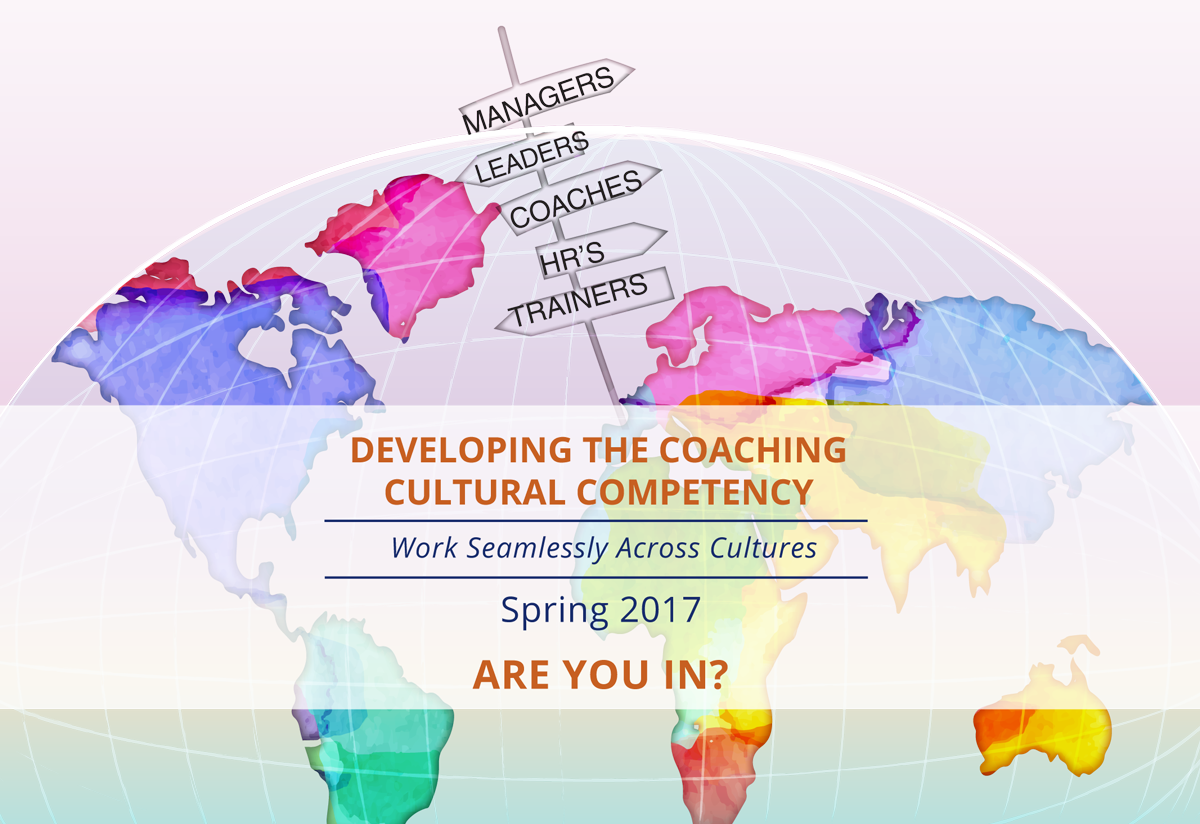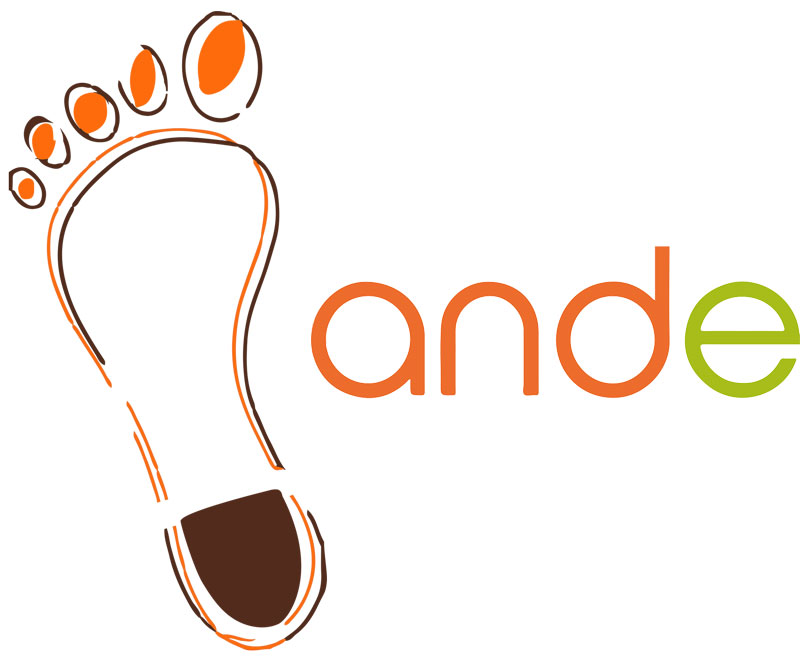Developing THE Coaching Cultural Competency
Work seamlessly across culturesCreated by Edmée Schalkx and Henriëtte Wentholt
Edmée & Henriëtte have broad experience in working with THE Cultural Competency. They are on a mission to create cultural awareness among business leaders, managers & professional coaches to have better performing teams, more significant coaching conversations and help them to seamlessly be able to work across borders.

Edmée Schalkx, PCC
Edmée is an anthropologist, Professional Certified Coach (PCC) and a Certified Mentor Coach with over 15 years of broad international experience with managers, professionals and coaches who work across cultures to manage cultural challenges and help them take advantage of what cultural diversity has to offer.

Henriëtte Wentholt, PCC
Henriëtte graduated as Psychologist and is holding a Professional Certified Coach credential (ICF). She has a broad international experience on coaching individuals and managers working globally, also supporting expats partners to pursue their careers.
Special Guest Speakers

Philippe Rosinski, MCC
Mr Rosisnki is a world authority in executive coaching, team coaching, and global leadership development. His innovative approach of bringing the crucial intercultural dimension into the practice of coaching has won him worldwide acclaim. His latest book Global Coaching has been described as “having moved the art and science of coaching to a new level”.

Dr. Barbara Gibson
Dr. Gibson is a consultant, researcher and lecturer focused on intercultural communication and global business with more than 25 years’ experience as a business communication professional worldwide.
Developing THE Coaching Cultural Competency
Work seamlessly across cultures
2017 (to be announced) – Valid for 24 CCEs (ICF Coaches)
No matter which type of country you were raised in and which cultures you are working with, gaining cultural awareness will make a world of difference in your results.
THE Coaching Cultural Competency is a high level training for professional coaches, trainers, HR, consultants, and managers working with people from diverse backgrounds (culture,nationality age, gender, education, language)
With Special Guest Speakers
Philippe Rosinski, author of Global Coaching
Dr. Barbara Gibson
Have you ever been in a lift with a total stranger? What do you do and what goes through your mind?
When you are standing in a line and the person next to you starts a conversation… How do you feel/react?
Or when you are doing a presentation for a multi-cultural team, people start laughing or doing an effort to contain a laugh after you said something?
These are day-to-day situations which often make us uncomfortable, insecure or wanting to run the other way.
At work when coaching,during a workshop, or when managing a diverse team we encounter situations we seem uncomfortable with, have no idea something happened, we seem to have missed out on something or, even worse, a total miss-understanding happened. Rather than a two-way conversation you feel you are having 2 different conversations at once.
Did you know that these reactions might be culturally based?
Culture is everywhere, but like air, we don’t see it. Culture impacts marketing, translations, consulting, relationships, advice, colour choice, parenting, negotiations and networking among others.
People who live around us, those we socialize with, and the ones we work with, come from different parts of the world and have different cultures. Their ways of thinking and living, and their values and beliefs are different from ours. At all times we are working with and establishing relationships with people–people who all have cultures.
- Culture affects perceptions & biases
- Culture influences our behaviour
- Culture shapes who we are
Thus, the importance of culture cannot be stressed enough, as it is something that lies within us, around us, and is an integral part of our being. It defines the way we treat others and ourselves.
How does culture affect business?
The way we are conditioned to see the world in our own culture seems obvious and commonplace. During business communication with people from a different culture, their beliefs and manners have to be taken into account. Language barriers need to be overcome. Cultural differences impact the success or failure of business negotiations, employee performance, or coaching sessions, language barriers etc. The differences in the sensitivity to time, way of communication, decision-making, risk-taking, and thinking of the parties involved, need to be considered.
The knowledge of our own and other cultures helps us accept these differences. Understanding the role of culture in our everyday life broadens our view towards cultural diversity. We learn to appreciate other cultures and not disrespect them.
In short, understanding culture is pivotal for success in today’s world.

OUTCOMES
- Acquire easy to apply models, tools and skills
- Understand how culture affects managers – staff or team processes
- Recognise where and how culture has an impact when managing teams
- Your business/work/team will become highly efficient
- Become acquainted with coaching and leading cross-cultural concepts
- Develop the cultural competency you need to support your clients/staff/team
- Understanding and awareness of (your) biases, blind spots, adequately use of models
- Learn to use the core coaching competencies through the lens of culture
- As manager, trainer, consultant, HR you will learn core coaching competencies directly applicable and useful for your daily work
- Coaches, consultants, HR, and managers will have the chance to discover and discuss the issues each professional area has and how can each support the other better
- Mutual learning in rich cross-pollination professional areas
- 2 individual coaching sessions by the course facilitators
Relevant for Professional Coaches:
- Understand cultural differences that affect the outcome of the coaching session
- Obtain 24 CCE’s (relevant for ICF coaches as the CCE can be used toward credentialing)
- 4 mentor hours (minimum hours depending on number of participants, relevant for ICF coaches looking for credentialing)
COURSE DETAILS
- Starting date: 26 October 2016
- Ending date: 14 December 2016
- One 2-hour class on Wednesdays at 16hrs CET during 8 weeks
- Weekly 1.5 hr homework
- 2 Collegial Calls
- 4 peer-to-peer group calls
- Course language: English
- 4 mentor hours (minimum hours depending on number of participants)
- Valid for 24 CCE’s (for ICF coaches)
GUEST SPEAKERS
Philippe Rosinski: learn and practice the “Cultural Orientations Framework” model, using the personal challenges of participants when coaching across cultures.
Barbara Gibson – Seminar: Examining the ‘Failure loop’ in intercultural setting.
TAKEAWAYS
During this 9 week training you will:
- Learn to identify situations that you might want to handle differently
- Be able to identify behaviours and create neutral reactions
- Step in others people shoes before you react – Empathy
- Learn how culture impacts more parts of your life than you are aware of
- Lessons learned can be applied in your business
- Use model and skills to manage your team better or
- Coach your clients from a “neutral “perspective
- Use core culture competencies to coach or manage more efficiently
WHO SHOULD ATTEND?
This training has been carefully developed to create a balanced match between professional coaches, managers, consultants and trainers working with people from different (cultural) backgrounds. You need to:
- Have an affinity or deep interest in cultural competency
- Have international clients or real ambition to coach globally or
- Be a manager in a diverse team/company or
- Be a trainer working with diverse cultural backgrounds
- Have a minimum of 5 years working experience
- international background or experience (desired)
